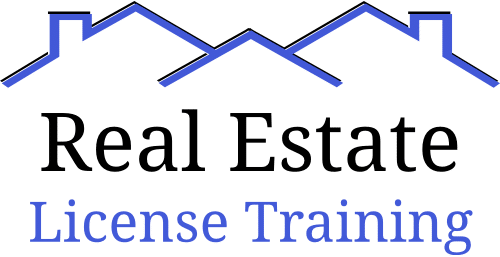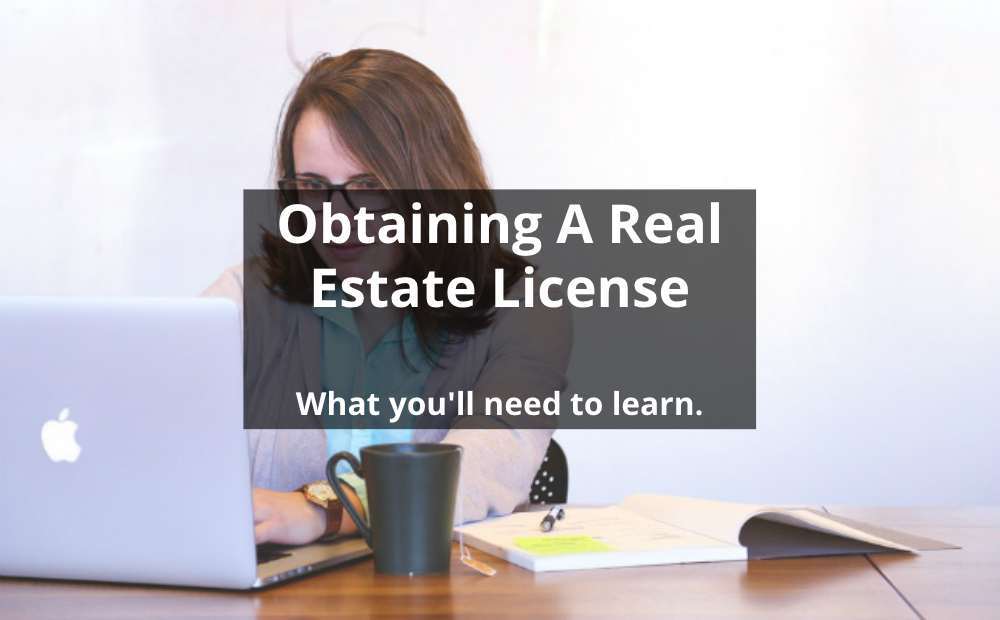Obtaining a Real Estate License is no walk in the park, but many of us are left in the dark about what, exactly, we will have to learn. The plan for my Real Estate License Training Journal, is to simply share the things I’m learning as I go through my California real estate license training. I am literally just starting my online training course, and so, it makes sense that I am starting off with the very basics. As of right now, I am simply getting an overview of the course and learning all about what I will be learning in the months ahead.
So with that, here is the daunting and overwhelming task I have ahead of me. Am I scared shitless? You bet. Will I push through, knowing I can do this? Of course!
1. The responsibilities and and authority of the California Bureau of Real Estate.
2. Rules, requirements, and regulations regarding obtaining a real estate license including application processes, qualification requirements, types of licenses in real estate, and educational requirements.
3. How a license can or can’t be used as well as regulations concerning how you can or can’t advertise, list properties, manage real estate offices, managing clerical personnel in real estate offices, etc.
4. All laws and regulations that fall under the Federal Fair Housing Act, California fair housing laws, and the NAR Professional Code of Ethics (no sweat, right?).
5. Obligations and concerns related to trust funds when deposited by real estate firms.
6. Rules regarding disclosing earned commissions to all parties involved with a transaction.
7. Understanding the regulatory differences between Northern and Southern California, especially as it relates to proper escrow handling.
8. Knowing the purpose of the California Real Estate General Fund and the Real Estate Recovery Fund.
9. Proven knowledge about legally mandated disclosures that you must make to real estate clients in California.
10. Understanding land ownership and property ownership, as well as how such ownership is transferred between parties.
11. Having the ability to calculate real estate taxes and special assessments.
12. Leasehold and freehold estates and interests.
13. Knowing what encumbrances, liens, easements, and encroachments are.
14. Intimate understanding of mortgage loans and trust deeds.
15. Understanding federal and state lending laws.
16. The ability to understand mortgage markets in California.
17. The different types of real estate loans, knowing when to use each, including government and non-government loans.
18. Having an understanding of law enforcement power as well as land use restrictions and public controls.
19. Issues regarding the environment including specific environmental regulations in California.
20. Learning about all of the different National and California trade and professional organizations.
21. Knowing how to tell the difference between real estate property and personal property.
22. Understanding real estate contracts, especially as it relates to listing and purchase agreements.
23. Understanding the different regulations regarding mobile homes and mobile home parks.
24. Types of institutional and non-institutional lenders in California.
25. Knowing how brokerage works, including how it relates to business opportunities in mineral, oil, and gas.
Chapter Breakdown For My Online Real Estate License Training Course
The above list is daunting as heck. It feels so overwhelming and as if I can never learn all that stuff in a reasonable amount of time. But like all complex things in life, I will just take it one day, one regulation, and one chapter at a time. Here is how my online course has broken up teaching all of this content.
Chapter 1 – Course Introduction, The California License Law, and the California Bureau of Real Estate
Chapter 2 – California Bureau of Real Estate, including license laws, educational requirements and enforcement of the license law
Chapter 3 – The Real Estate License Examination, including the exam weighting and rules
Chapter 4 – Trade and Professional Organizations, and Ethics in Real Estate
Chapter 5 – Property, including personal and real property, and fixtures
Chapter 6 – Title to Real Property, including ownership, encumbrances, liens, easements, encroachments, and homesteads
Chapter 7 – Contracts and Transfer of Interests in Real Property, including the elements of a contract and real estate contracts
Chapter 8 – Instruments of Transfer and Deeds
Chapter 9 – Escrow, including escrow principles and procedures, escrow holders, and instructions
Chapter 10 – Landlord and Tenant, including leasehold estates, obligations of the parties to a lease, and remedies of a landlord
Chapter 11 – Agency, including the creation of agency relationships, fiduciary duties, and special brokerage relationships
Chapter 12 – Impact of the Penal Code and Other Statutes
Chapter 13 – Real Estate Finance, including the loan process and finance terms
Chapter 14 – Institutional Lenders and Government Participation in Real Estate Finance, including FHA, VA, and the Cal-Vet programs
Chapter 15 – Alternate Forms of Financing
Chapter 16 – California Mortgage Loans, including the Real Property Loan Law;
Chapter 17 – Real Estate Syndicates and Real Estate Investment Trusts
Chapter 18 – Appraisals and Valuation, including depreciation, appraisal methods, and competitive market analyses
Chapter 19 – Taxation and Assessments
Chapter 20 – Subdivisions and Other Public Controls, including police power, common interest developments, and the two California subdivision laws
Chapter 21 – Planning and Zoning
Chapter 22 – Brokerage, including mobile home sales, and mineral, oil, and gas brokerage regulations
Chapter 23 – Contract Provisions in Residential Real Estate Transactions, including listing agreements, purchase contracts, and mandated disclosures
Chapter 24 – Trust Funds
Chapter 25 – Property Management
Chapter 26 – Business Opportunities
Chapter 27 – Most Recent Law Updates
Chapter 28 – Math Equations
Obtaining A Real Estate License Isn’t Going To Be Easy!
Good gracious. I haven’t even gotten into the training yet and I’m already feeling like this is going to be an enormous task! I’m mostly concerned with having to memorize regulations, and of course, the MATH! I am absolutely terrible at math, so this is freaking me out a little bit.
With that said, while I have to be honest and say that yes, I’m feeling quite overwhelmed already, I also know that I just have to do this in steps. I am under no pressure to get this done quickly, so I plan on taking my time, really understanding the content, and even if it takes me a year, I will get my real estate license.

